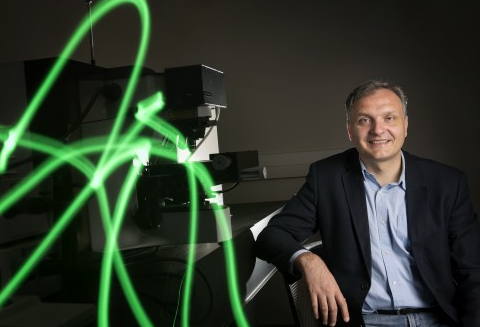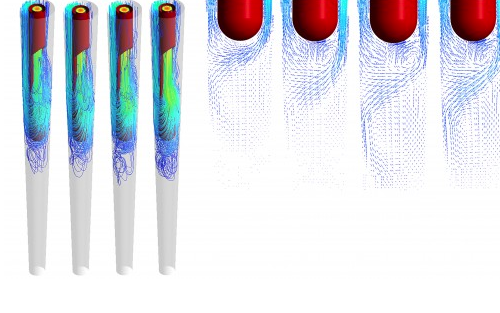
This technology, the NuCress scaffold, is a nanomaterial-based bone regeneration device pioneered by UA Little Rock’s Dr. Alex Biris, director of the Center for Integrative Nanotechnology Sciences, leader of the DOD grant, and co-founder of NuShores. Biris spearheaded this new contract alongside NuShores CEO Sharon Ballard.
“We are very excited to collaborate with NuShores for the manufacturing stage of the NuCress product development. NuShores was founded with DOD goals in mind, and this contract is essential for bringing those goals one step closer to fruition,” Biris said.
NuShores was founded in 2014, at DOD’s request, to license UA Little Rock’s bone regeneration products.
“This new contract affirms the strength of NuShores as a company, as well as the potential of UA Little Rock to launch successful technological development efforts,” said Joni Lee, UA Little Rock vice chancellor for university affairs. “We look forward to seeing the results of this collaboration.”
The contracted work will be led by Ballard and supported by NuShores’ manufacturing manager Mark Pelo, a 27-year veteran of the implantable medical devices industry who joined the company in July. Together, they will establish one of the only medical device clean manufacturing facilities in Arkansas.
“This first manufacturing project will establish NuShores as a medical device manufacturer homegrown in Arkansas,” Ballard said. “We have proven we can fund, establish, and recruit these manufacturing elements. Thanks to this contract, we will now also be able to accelerate development and product manufacturing of other maturing products in our pipeline, such as spine and dental implant indications.”
NuShores’ focus in the upcoming years will be production process automation, leading to a hands-free factory that optimizes quality and maximizes gross margins.
“We must be able to compete in pricing with established giants in the industry,” Pelo said. “The only way we can do that is intelligent automation and solid vendor relationships.”
The U.S. Army Medical Research Acquisition Activity, 839 Chandler Street, Fort Detrick, MD 21702-5014 is the awarding and administering acquisition office. This work is supported by the Department of Defense, through the Joint Warfighter Medical Research Program under Award No. W81XWH1920014 to the University of Arkansas Little Rock. Opinions, interpretations, conclusions, and recommendations are those of the author and are not necessarily endorsed by the Department of Defense.







 MouthWatch, LLC, a leader in innovative teledentistry solutions, digital case presentation tools and intraoral imaging devices, was recently included on the annual Inc. 5000 list, the most prestigious ranking of the nation’s fastest-growing private companies. The list represents a unique look at the most successful companies within the American economy’s most dynamic segment—its independent small businesses.
MouthWatch, LLC, a leader in innovative teledentistry solutions, digital case presentation tools and intraoral imaging devices, was recently included on the annual Inc. 5000 list, the most prestigious ranking of the nation’s fastest-growing private companies. The list represents a unique look at the most successful companies within the American economy’s most dynamic segment—its independent small businesses.


